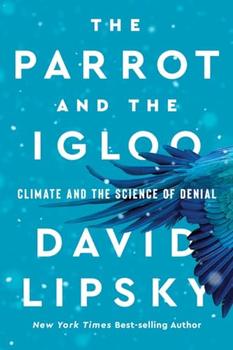Summary | Excerpt | Reviews | Beyond the Book | Readalikes | Genres & Themes | Author Bio

Climate and the Science of Denial
by David Lipsky
Morse attended Andover, started Yale at age fourteen. He liked physics and chemistry. He played with Volta's battery, sat in on lectures about electricity: it was then understood as one of the world's secretions—"electrical effluvia," the "universal fluid."
But Morse was mostly an artist; he helped defray tuition by selling friends portraits of themselves. Then he headed for England, to study painting, enter competitions, grouse about money, return home broke after three years. London had been a series of wardrobe and beverage disappointments. "My drink is water," Morse complained to his parents. "I have had no new clothes for nearly a year."
In the States, Morse began an incredibly successful career as a failure. He became a kind of restlessly unsuccessful painter, changing lures and streams each time he couldn't catch fish, failing at a variety of locations and styles. He failed with mythological subjects in Boston. With patriotic images in Washington and mini-portraits in New Hampshire. (In 1827, he began a strange campaign in New York City against the ballet. "The plain fact of the matter is this," Morse explained in an editorial. "The exhibition in question is to all intents and purposes the public exposure of a naked female." This failed.) For an uncustomary, four-year respite, Morse succeeded in Charleston, South Carolina, as a society painter. Then recession crept in, and he failed there, too.
Excerpted from The Parrot and the Igloo by David Lipsky. Copyright © 2023 by David Lipsky. Excerpted by permission of W.W. Norton & Company. All rights reserved. No part of this excerpt may be reproduced or reprinted without permission in writing from the publisher.




Censorship, like charity, should begin at home: but unlike charity, it should end there.
Click Here to find out who said this, as well as discovering other famous literary quotes!
Your guide toexceptional books
BookBrowse seeks out and recommends the best in contemporary fiction and nonfiction—books that not only engage and entertain but also deepen our understanding of ourselves and the world around us.